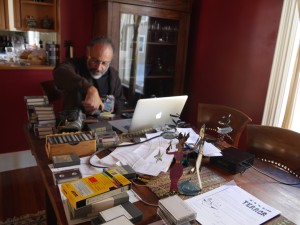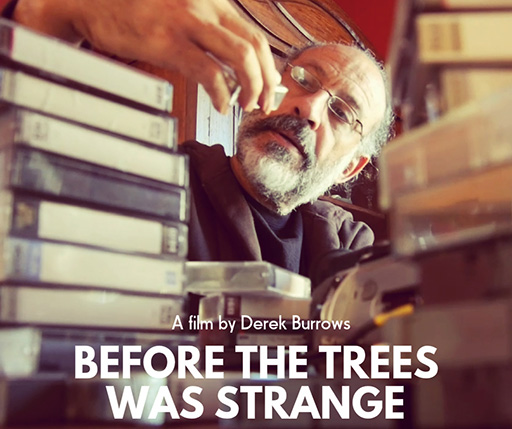Director Statement
I had been telling the stories featured in this film for many years but needed to find out more about my own family’s history, especially my mother’s. All her life she insisted on seeing herself and her children as white, although she and we are varying shades of brown from me, the darkest, to my sister the whitest. I left The Bahamas in 1974 White only to arrive in the States to be accepted as Black. I spent the next 30 years wondering about my true identity. After my mother died I felt free to explore this question in the Bahamas National Archives, through interviews of relatives and finally though DNA testing to discover a shocking truth.
Having been discriminated against herself, I realize that Mother’s fear of her children being treated differently because of color caused her to reject the possibility of our own blackness, despite some of our obvious features. It was our eventual confrontation with her that allowed her to express and recognize her fears and to finally let them go. This is when we could truly forgive her.
I want to use this film to show that Racism only exists as long as we love or excuse those closest to us when they exhibit prejudicial behavior. Each of us must first recognize when our loved ones exhibit micro-aggressions and veiled racist behavior and then risk rocking the boat by spotlighting their unacceptable acts. In my work I have helped people examine their prejudices and fears and start to change those perceptions which drive unkind behavior. I am excited by the responses to rough cut screenings that included long discussions about family and race and love and forgiveness.
About Derek Burrows
One of four national storytellers, Derek was invited to the first National Book Festival sponsored by the White House and First Lady Laura Bush.
As a storyteller, Derek specializes in Afro-Caribbean and African Diaspora tales, among other styles and traditions, including his own compositions; he has been “telling” for over two decades in the New England area, across the country, and internationally (in both Spanish and English), and he often does work in schools, using stories to teach tolerance.
As a musician, Derek has performed for over 30 years with Voice of the Turtle (Derek sings, play flamenco guitar, bagpipes, flute, and many other instruments, medieval and modern).
Derek’s singular style is filled with textures and colors, whether telling stories, playing music, leading workshops or presenting original works. Weaving together flights of the imagination with tones and rhythms, his dynamic presentations reaffirm the power of words and the commonly loved language of music. A true native of the Bahamas, he carries on the tradition of entertaining and educating wherever he goes, whomever he meets.
As a filmmaker Derek has just completed a feature length documentary called Before the Trees Was Strange, a story of his family and how they dealt with the issue of racism growing up with a Mother whose fears of being being perceived as black caused her to reject her children’s choices in their lives.
 Production Notes
Production Notes
Making of
For the past 30 years I have been filming my family. As a storyteller and performer I’ve told some of the stories that are in the film during my performances and one day decided it was time to make a larger story. The idea of a film came to me after years of editing short pieces but never imagining a larger piece until my Mother’s death 6 years ago when I realized that the stories I had been telling were a part of a much larger story, one that dealt with the issue of race within my family as well and the question of love and forgiveness. I had been working with issues of race in America for many years but it was one particular incident within my family that brought the race issue to a head and changed the dynamics within my family. I then decided that this was the larger story that had to be told. Throughout this journey I also realized that often racism is more about love than hate and that within my own family we were protecting our mother because we loved her but still allowing her to commit acts of racism because of her fears. It was the final confrontation that allowed her to change something within her thinking.

